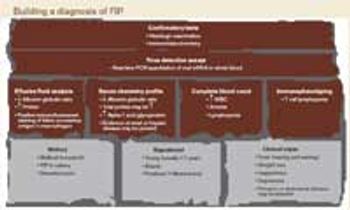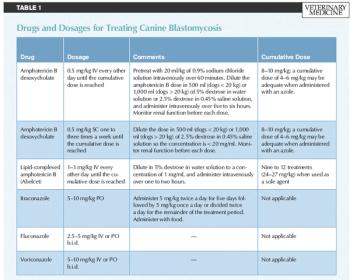
Brucella canis is a non-motile, Gram negative coccobacillus with a host range limited to domestic and wild canids.

Brucella canis is a non-motile, Gram negative coccobacillus with a host range limited to domestic and wild canids.

Feline leukemia virus is endemic wherever there are free-roaming cats.

Feline infectious peritonitis (FIP) is feared by people who breed cats.

Ocular disease due to feline herpesvirus (FHV) is common.

Increasing numbers of human beings are immunocompromised as a result of illness or the use of immunosuppressive drugs, and it is estimated that at least 30% to 40% of immunocompromised patients own companion animals.

Bartonella infections of domestic cats have only recently been recognized, but likely have existed for thousands of years.

Methicillin-resistant Staphylococcus infections have been a concern in human medicine since the first healthcare-associated MR Staphylococcus aureus (HA-MRSA) infections were reported in human beings in 1961.

Canine leptospirosis is a zoonotic disease that small animal veterinarians are likely to encounter in routine clinical practice.

Feline infectious peritonitis (FIP) remains a daunting disease-its pathogenesis is unclear, it can be difficult to diagnose, especially in the dry form, and it is uniformly fatal.

A review of what's happening with canine parvovirus in the United States.

Washington -- A summary of the latest research on equine herpesvirus myeloencephalopathy (EHM), based on interviews with 18 veterinarians or state equine program managers who dealt with outbreaks in recent years, is available through the USDA?s Animal and Plant Health Inspections Services' (APHIS) Centers for Epidemiology and Animal Health (CEAH).

Community-acquired methicillin-resistant Staphylococcus aureus, or MRSA, strains have become more prevalent over the last 10 years.

This educational vacation in August benefits individuals-and the practice.

Washington - The Environmental Protection Agency (EPA) approved the first license for an antimicrobial pesticide product to deactivate anthrax spores on hard surfaces.

In this introduction to DVM Newsmagazine's step-by-step veterinary pictorial tutorial, Dr. Crowe explains the general indications for using spica, meta and back splints.

Form only.

Philadelphia -- An outbreak that killed six dogs, resulting in the quarantine of two Pennsylvania SPCA shelters and a hospital, has been attributed to 'strep zoo,' a bacterial infection.

Philadelphia -- Isolated cases of severe canine illness resulting in six deaths closed two shelters and a hospital run by the Pennsylvania Society for the Prevention of Cruelty to Animals (PSPCA).

Investigators may never confirm the source of H1N1, but the outbreak lead to more research dollars.

The human nose is too cold for avian flu viruses to flourish.

Fort Collins, Colo. -- The Rocky Mountain Regional Center of Excellence was awarded $36.4 million to continue researching vaccines, tests and treatments for some of the world's most plaguing infectious diseases.

Fort Collins, Colo. -- Colorado State University nailed a $100,000 grant to develop a vaccine system for sand flies to prevent the spread of infectious diseases like leishmaniasis.

National Report -- The latest update on the nationwide outbreak of contagious equine metritis (CEM) that began about five months ago shows 18 stallions in six states and five mares in three states so far confirmed CEM-positive by the USDA's National Veterinary Services Laboratories.

Blastomycosis is a systemic fungal infection caused by the dimorphic fungus Blastomyces dermatitidis. The infective form of the organism, the mycelial phase, is most likely to be found in sandy, acidic soil near bodies of fresh water.

The World Health Organization will try to shed light on how a new strain of swine influenza developed and is being spread among humans.